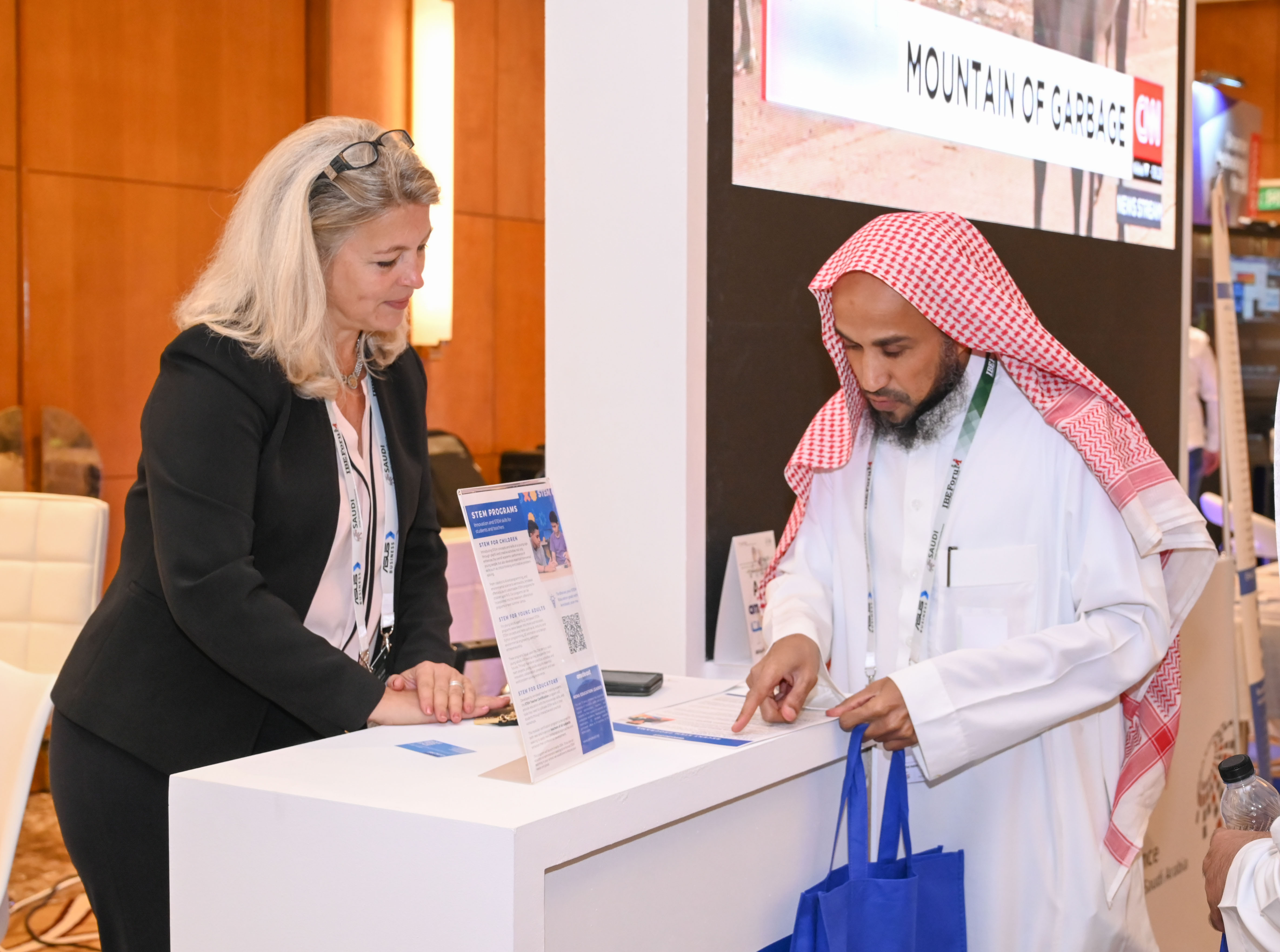
Jen Smith, Amideast's Director for Workforce Development & Entrepreneurship, answers questions about Amideast's work in the region.
At the recent STEM Education Summit in Riyadh, Saudi Arabia, Amideast met with educators and experts from across the region. One consistent theme emerged: STEM education means different things to different audiences. For some, improving STEM education means improving the quality of the curricula and delivery of STEM subjects: science, technology, engineering, and mathematics. For others, promoting STEM education means STEM skills—analytical and critical thinking, problem-solving, creativity, and effective communication—in all classrooms, from the social sciences to the arts.

Amideast/Saudi Arabia leadership and staff connect with attendees at the 2023 KSA STEM Education Summit.
In the MENA and elsewhere, STEM education refers increasingly to a core set of competencies as much or more than it does to a body of knowledge in STEM subjects. There is an urgent need to develop both STEM knowledge and competencies in youth, and the quality of STEM education is inextricably tied to the knowledge competence of its educators. In rapidly advancing fields such as technology and science, teachers must stay abreast of the latest developments to impart knowledge to their students and prepare them for the jobs of the future. Many teachers of STEM subjects indicate that they do not have enough support, or guidance to deliver new curricula or opportunities for ongoing professional development and networking that are critical to their success.
As nations recognize that STEM education drives economic growth and innovation, enhances national security, and addresses pressing societal challenges, it will be essential for all stakeholders in the MENA to develop a shared understanding and vocabulary regarding STEM subjects and STEM competencies and the critical importance of enhancing both.
— Jen Smith, Regional Director for Workforce Development & Entrepreneurship
Similarly, teachers of non-STEM subjects either narrowly define STEM as a set of subjects and thus do not see the relevance to their classrooms or are unsure of how to incorporate STEM competencies into a literature or history class. Educators of all subjects and age groups need practical training in how to cultivate the critical thinking skills that enable students to solve complex problems and make informed decisions.
As nations recognize that STEM education drives economic growth and innovation, enhances national security, and addresses pressing societal challenges, it will be essential for all stakeholders in the MENA to develop a shared understanding and vocabulary regarding STEM subjects and STEM competencies and the critical importance of enhancing both. In response, Amideast is developing impactful and engaging professional development opportunities for pre- and in-service teachers of all subjects to ensure that the region’s youth are prepared for their futures.
By Jen Smith, Amideast's Regional Director for Workforce Development & Entrepreneurship
